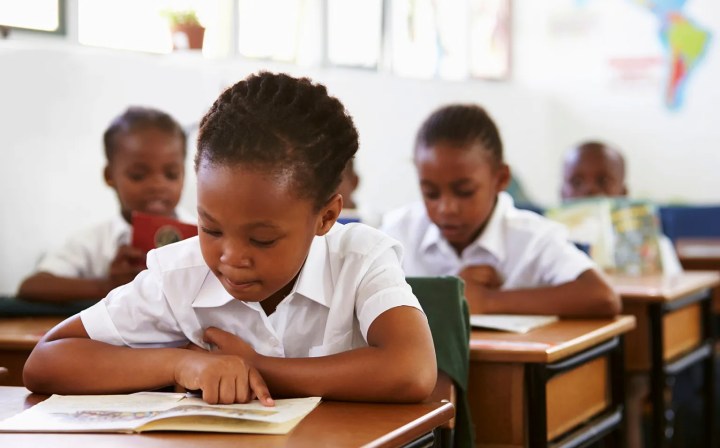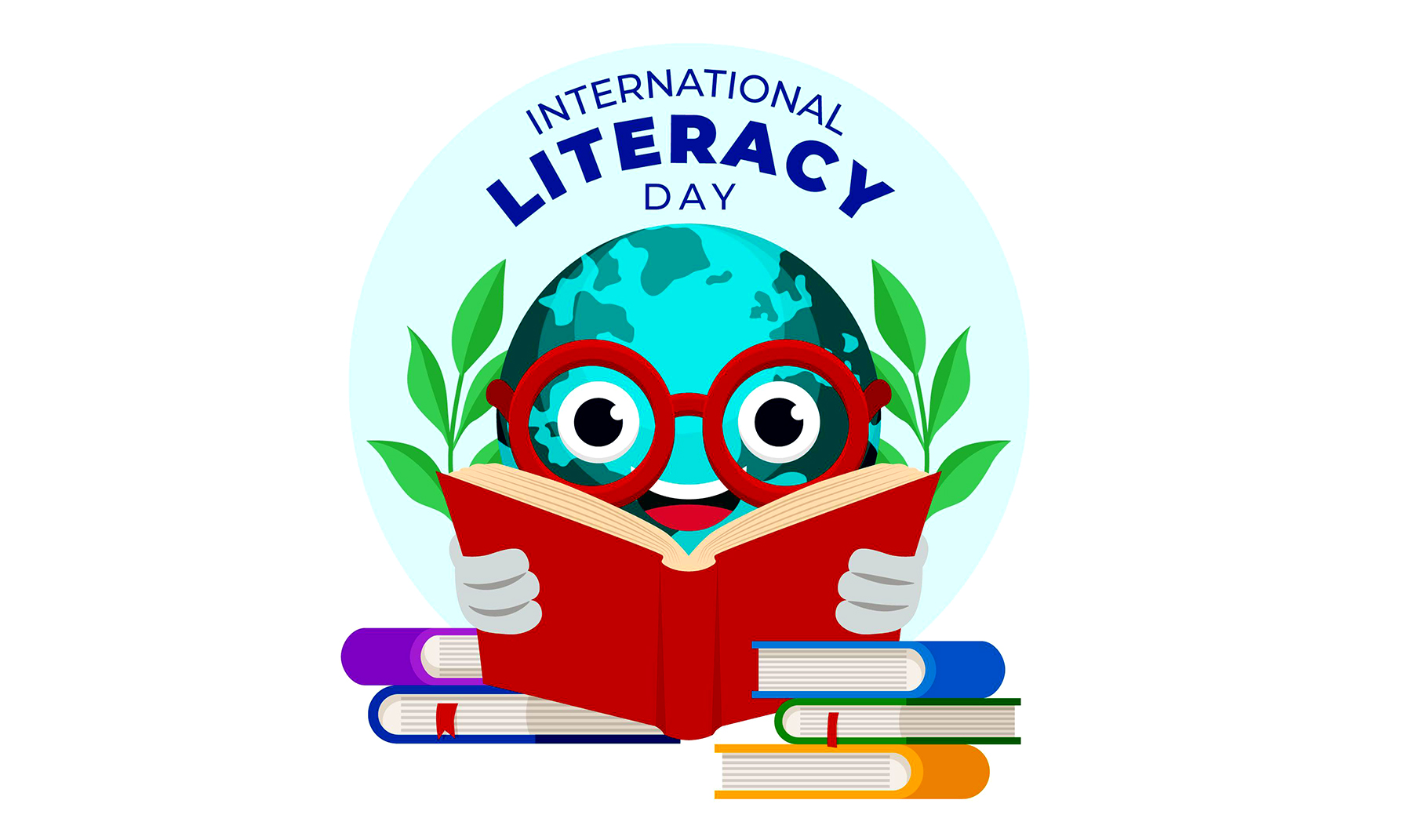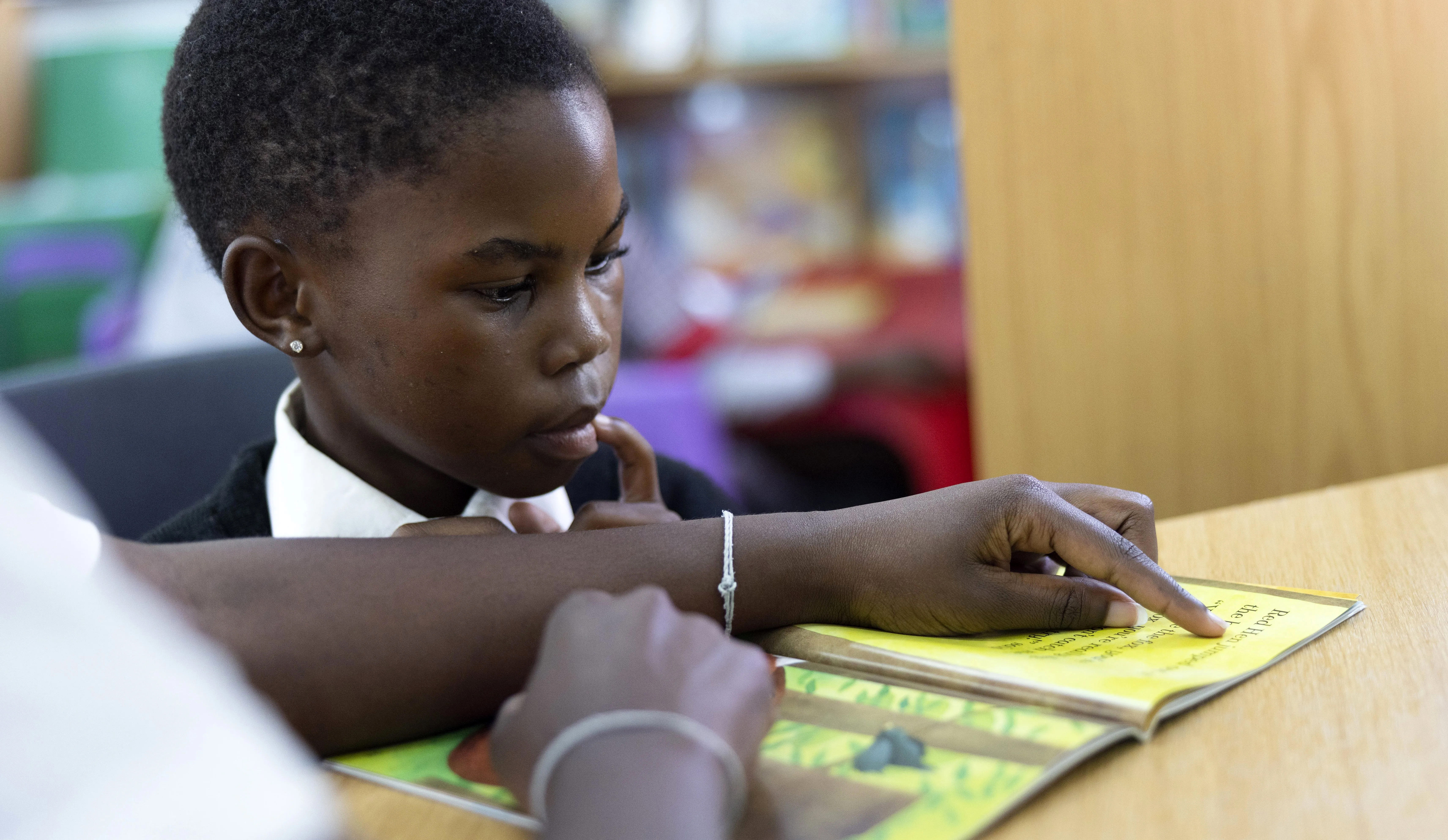RIGHT TO READ CAMPAIGN
Learning our ABCs starts with four Ts – how a new plan aims to tackle South Africa’s literacy crisis

South Africa’s 81% illiteracy rate among Grade 4s has prompted several organisations to launch the Right to Read campaign to mobilise civil society to make early-grade literacy a national priority.
A grouping of organisations has a broad plan of action to address South Africa’s literacy crisis, but they stress that it cannot be done in “isolation” and believe everyone in the country should have a “stake” in finding the solution.
The campaign – a joint effort by the South African Human Rights Commission, the Legal Resources Centre, Equal Education and SECTION27 – aims to mobilise society at large to improve literacy through legislation.
Noncedo Madubedube, general secretary of Equal Education, explained the thinking behind the recently launched Right to Read Campaign:
“We must absolutely recognise that we have many interventions from the education sector, the social justice and the civil society sector that is dealing with education. There are many interventions across the board and in different schools across the country, and what we were really looking for is something that we could propose at a systemic level, an intervention that can cut across all provinces, and be delivered through the education systems for all schools.”
Broad-based, grassroots campaign to address the crisis
Madubedube said that although the campaign was launched in August 2023, and comes after the 2021 Progress in International Reading Literacy Study (PIRLS) which revealed that 81% of Grade 4 pupils cannot read for meaning in any language including their home language, conversations about what can be done to address the literacy crisis began more than a year ago.
Read more in Daily Maverick: International study shows most Grade 4s in South Africa cannot read for meaning
“One of the features of this campaign is that it is grassroots. So,we want the most-affected communities, interested parties, practitioners and children themselves to be leading and informing this campaign,” she said.
The second feature of the campaign is that it is broad-based. “It isn’t just for organisations that work primarily in literacy, but all parties, all people living in South Africa that are interested in interventions, in remedies, in a space where we can learn from each other and build strategies for advocacy that can compel our government to implement a strategy immediately to address the literacy crisis absolutely must be able to join,” she said.

The theme for this year’s International Literacy Day, on 8 September, is ‘Transforming Literacy Learning Spaces’. (Photo: iStock)
Madubedube noted that it was important to find a way to contribute to the work already being done in the education sector. One way is establishing what the minimum norms and standards for foundation-phase learning and for the right to read for meaning would look like.
“We thought with the experience that some of our organisations do have, let’s go and see if we were to begin to draft shadow regulations for these departments of education, that is, informed by the broad-based campaign grouping that is informed by the grassroots. What would that look like and can it absolutely compel the government to understand this crisis and act with urgency around interventions?”
The 4Ts – time, training, texts and testing
The campaign proposes binding regulations for the country to have minimum obligations to address the reading crisis and for the right to basic education to be realised.
“There is one intervention that has been proposed at the moment. It’s a grassroots-informed regulation, and norms and standards for the right to read. Inside the regulations, we are proposing four main things that departments and school communities must consider,” said Madubedube.
Specialised training is amiss inside our tertiary sector, to help equip teachers to go into the classroom far more equipped and supported to teach reading.
The campaign has key focus areas for the development of binding regulations that will ensure all pupils receive equitable access to the core elements necessary for effective reading instruction, known as the 4Ts – time, training, texts, and testing.
“Studies have proven that not enough time in our classrooms is spent on teaching the learners to read for comprehension. Something extraordinary needs to happen when 81% of children in the fourth grade cannot read for meaning. So, we need to equitably allocate time for reading practice inside a classroom,” she said.

(Image: Freepik)
The regulations should include specialised training for all foundation-phase teachers. “We have also found with studies, and we’ve spoken to education schools across the country, that we must improve and consider specialised training for foundation-phase teachers to help them understand and learn how to teach reading because it’s not as simple as being able to do it yourself. How do you teach that practice to children in particular? So, we do think specialised training is amiss inside our tertiary sector, to help equip teachers to go into the classroom far more equipped and supported to teach reading.”
The regulations should also have the minimum number and quality of texts and support material provided to teachers and pupils. “We need something that’s like a benchmark; there must be something that says this is the most basic text and content that you must have in the classroom if you are to teach reading for meaning,” Madubedube said. She stressed that when thinking about a minimum set of texts and content for each school, it is also important to think about what text can be provided for children across our communities in different languages.
If there is a reading plan that the Department of Education will put to the country, we need some means and ways to test that it is working.
“This is not part of the regulations, but we also need spaces where children can access different kinds of materials so that they are also reading for pleasure and enjoyment at home, in communal and safe living spaces in the community,” she said.
Regular testing of pupils’ literacy abilities, and not just testing for the sake of standardised systemic testing, was necessary. “We need some kind of model that helps teachers understand where to make the necessary interventions to support learners in their classrooms.
“We do need some kind of support with putting together a testing series that allows us to take it back to schools and go, ‘it seems that in this area learners need more support’, so that teachers can curate their teaching practice.”
There should also be regular monitoring and evaluation of the implementation of the national reading strategy to ensure its effectiveness. “I think it will also help us, as interested people in South Africa, monitor the progress and the support given to schools to roll out minimum norms and standards for the right to read. If there is a reading plan that the Department of Education will put to the country, we need some means and ways to test that it is working, and a big part of the testing is very much as a support aid to teachers and schools,” she said.
What’s next?
The Right to Read Campaign was launched on 30 August 2023, at Constitutional Hill in Johannesburg. Madubedube said the coalition is looking for further collaborations with traditional media and public platforms to garner support and have people understand the alarming literacy crisis.
“We want to put it in the fabric of South Africa that there is in fact a crisis in the ability of learners to read for meaning, so the ordinary person living in the country can understand that,” she said.

The nonprofit help2read focuses on literacy development and community strengthening by involving young adults in tutor programmes. (Photo: Supplied / help2read)
The coalition was still looking for partners to join the campaign. “People that are interested in this work, and have an appetite to work with others… please reach out to us. We will be having regular meetings as a collective to create this grand plan of action.”
Continuing to work on the shadow regulations was a priority. “We want to take them to all nine provinces across the country and have people that work inside schools, that care for children, that know things around literacy and numeracy, to help us make sure that we’ve got the most grounded and contextually sane regulations to propose to government.”
Madubedube stressed that the crisis cannot be solved in isolation.
“If we are to absolutely improve the socioeconomic conditions of everyone in our country, then we need every person in this country across sectors, across the ecosystem, to make some stake and get involved in supporting interventions that cater for children,” she said.
“Because the right to read is a dignity question. The right to read is the right to dignity”. DM




















 Become an Insider
Become an Insider
Comments - Please login in order to comment.